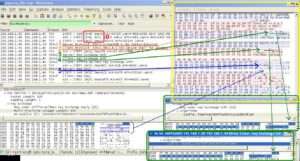A new vulnerability has been discovered in OpenSSH, a widely-used tool for secure remote access to Linux systems. This vulnerability poses a significant security risk, potentially allowing attackers to gain unauthorized access to Linux servers and compromise sensitive data. In this article, we delve into the details of the OpenSSH vulnerability and explore the necessary steps to ensure secure SSH connections.

A new vulnerability has been discovered in OpenSSH, a popular open-source implementation of the Secure Shell (SSH) protocol. The vulnerability, tracked as CVE-2023-38408, allows an attacker to execute arbitrary code on a vulnerable system by sending a specially crafted packet.
Understanding the OpenSSH Vulnerability
The newly identified vulnerability in OpenSSH allows attackers to execute arbitrary code on Linux systems by exploiting a flaw in the client-side configuration. This means that even systems running the latest OpenSSH versions might be susceptible to attacks if the client-side settings are not adequately secured.
Impact on Linux Systems
As one of the most widely-used secure shell implementations, OpenSSH is a crucial component of many Linux-based infrastructures. The vulnerability puts a wide range of Linux systems, including servers, workstations, and cloud instances, at risk of unauthorized access and potential data breaches.
Secure SSH Configuration
To safeguard against this vulnerability, administrators must prioritize the implementation of secure SSH configurations. This involves enforcing strong authentication methods, restricting access to authorized users, and disabling insecure SSH protocols such as SSHv1.
Prompt Patching and Updates
Vendors and developers have been quick to release patches and updates addressing the OpenSSH vulnerability. Promptly applying these updates to all Linux systems within an organization is essential to mitigate the risk of exploitation.
Monitoring and Intrusion Detection
Implementing robust monitoring and intrusion detection systems can help identify any suspicious SSH activity on Linux servers. This proactive approach allows administrators to respond quickly to potential threats before they escalate.
Multi-Factor Authentication
Enabling multi-factor authentication (MFA) for SSH logins adds an additional layer of security, significantly reducing the risk of unauthorized access. MFA requires users to provide more than one form of authentication, such as a password and a one-time code sent to their mobile device.
Regular Security Audits
Regular security audits and vulnerability assessments are essential to identify any potential weaknesses in the SSH configuration and overall system security. Addressing these vulnerabilities promptly enhances the overall resilience of the Linux environment.

Some Interesting Facts :
- What is OpenSSH?
- What is the CVE-2023-38408 vulnerability?
- How can I protect myself from the CVE-2023-38408 vulnerability?
There are a few things you can do to protect yourself from the CVE-2023-38408 vulnerability:
* Update your OpenSSH installation to the latest version.
* Use a firewall to block incoming traffic on port 22, the default port for SSH.
* Use a strong password for your SSH login.
- What are the consequences of the CVE-2023-38408 vulnerability?

The newly discovered OpenSSH vulnerability serves as a wake-up call for Linux administrators to reevaluate their SSH configurations and ensure robust security measures are in place. By promptly applying patches, implementing secure SSH settings, and enhancing authentication protocols, organizations can effectively safeguard their Linux systems from potential exploitation. Prioritizing security measures and staying vigilant against emerging threats is crucial to maintaining the integrity and confidentiality of sensitive data on Linux servers. The CVE-2023-38408 vulnerability is a serious security issue. It is important to update your OpenSSH installation to the latest version and take other steps to protect yourself from this vulnerability.
